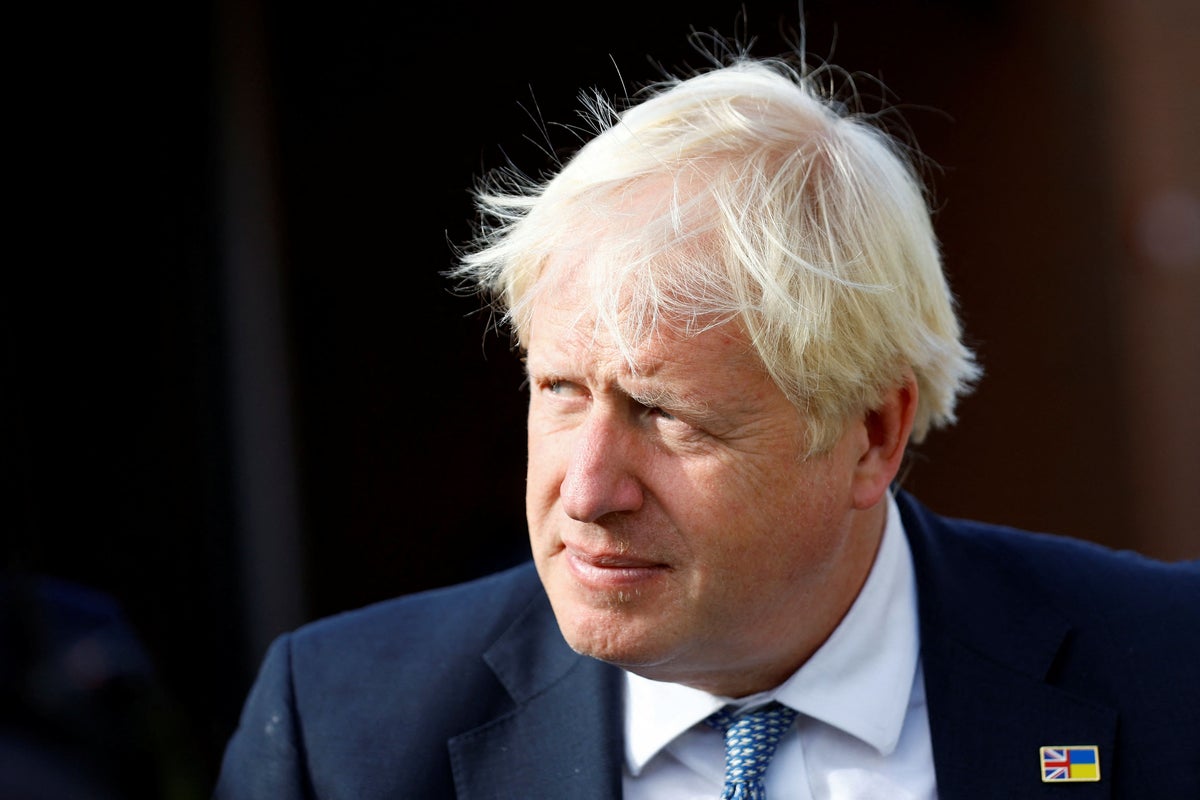
The government’s legal challenge over the UK Covid Inquiry’s demand for former prime minister Boris Johnson’s unredacted WhatsApp messages, diaries and personal notebooks will be heard at the High Court.
The Cabinet Office is bringing a judicial review of inquiry chairwoman Baroness Hallett’s order to release the documents, arguing it should not have to hand over material that is “unambiguously irrelevant”.
Lawyers for the Cabinet Office will argue at a hearing in London on Friday that the inquiry does not have the legal power to force ministers to release documents and messages which it says are “unambiguously irrelevant” and cover matters “unconnected to the government’s handling of Covid”.
They will say there are “important issues of principle at stake” affecting the rights of individuals and “the proper conduct of government”.
The government took the highly unusual step to launch the challenge earlier in June and the move attracted criticism after days of public wrangling between the Cabinet Office and Lady Hallett’s probe after she rejected its argument the material was not relevant in a May ruling.
In written documents filed at the High Court, Sir James Eadie KC, representing the Cabinet Office, argues the powers conferred on inquiries by the Inquiries Act 2005 do not extend to the compulsion of material that is irrelevant to the work of an inquiry, and that notices for evidence “must be limited by reference to relevance”.
Sir James said in written arguments that the Cabinet Office “well understands” Lady Hallett’s concern to ensure she has all the material she needs to reach “soundly based conclusions on the matters she is inquiring into”.
He added: “The Cabinet Office shares that concern and has sought, and will continue to seek, to assist the inquiry including by the provision of relevant documents.
“This application for judicial review is brought because there are real concerns that individuals, junior officials, current and former ministers and departments should not be required to provide material that is irrelevant to the inquiry’s work.
“That concern, to ensure that a proper line between relevant and irrelevant material, is a legitimate concern in principle and in its own right, especially given that these are compulsory powers.
“It is sharpened by the fact that irrelevant material contains ‘references to personal and family information, including illness and disciplinary matters’ and ‘comments of a personal nature about identified or identifiable individuals which are unrelated to Covid-19 or that individuals’ role in connection with the response to it’, and may well be sensitive for a whole variety of reasons – for example to do with personal privacy, to do with other aspects of the work of government, or simply to do with the informal nature of the sort of communication that occurs on WhatsApp.”
He added: “If notices are properly restricted to relevant material, and if the door is not open for an exercise of powers of compulsion in very widely formulated notices on the basis that almost anything is to be characterised as potentially relevant, the inquiry’s work will not be impeded a jot in practical terms.
“They will receive, and the public can be entirely confident that they will receive, every scrap of relevant material.
“In purely practical terms, there are far greater risks attached to the sort of approach that has been taken here by the inquiry – risks of the inquiry being swamped with material, much irrelevant; risks of their resources being side-tracked into reviewing exercises that they should not be, and do not need to be, undertaking; and risks accordingly that their speed and efficiency put at risk.”
The row with the inquiry centres around Mr Johnson’s WhatsApp messages, diaries and personal notebooks, which the former prime minister handed over in late May to the Cabinet Office in unredacted form.
The court documents filed on 1 June revealed the WhatsApp messages passed to officials are only from May 2021 onwards.
In a statement to the inquiry, senior civil servant Ellie Nicholson said Mr Johnson’s lawyers had not provided a “substantive response” to a request from the Cabinet Office for his old mobile phone.
Ms Nicholson said the Cabinet Office had received Mr Johnson’s WhatsApp messages on Wednesday afternoon and was reviewing the material “for national security sensitivities and unambiguously irrelevant material, and appropriate redactions are being applied”.
She added: “In that material, there are no WhatsApp communications before May 2021. I understand that this is because, in April 2021, in light of a well-publicised security breach, Mr Johnson implemented security advice relating to the mobile phone he had had up until that time.”
Mr Johnson was forced to change his mobile in 2021 after it emerged his number had been publicly available online for 15 years.
The former prime minister wrote to the inquiry after the Cabinet Office launched the judicial review, saying he was “more than happy” to hand over his unredacted WhatsApp messages and notebooks directly to the inquiry.
He is believed to have written to the Cabinet Office to ask whether security and technical support can be given to help retrieve the content on the device without compromising security.
The hearing, before Lord Justice Dingemans and Mr Justice Garnham, is due to begin at 10.30am on Friday and conclude on Monday.







